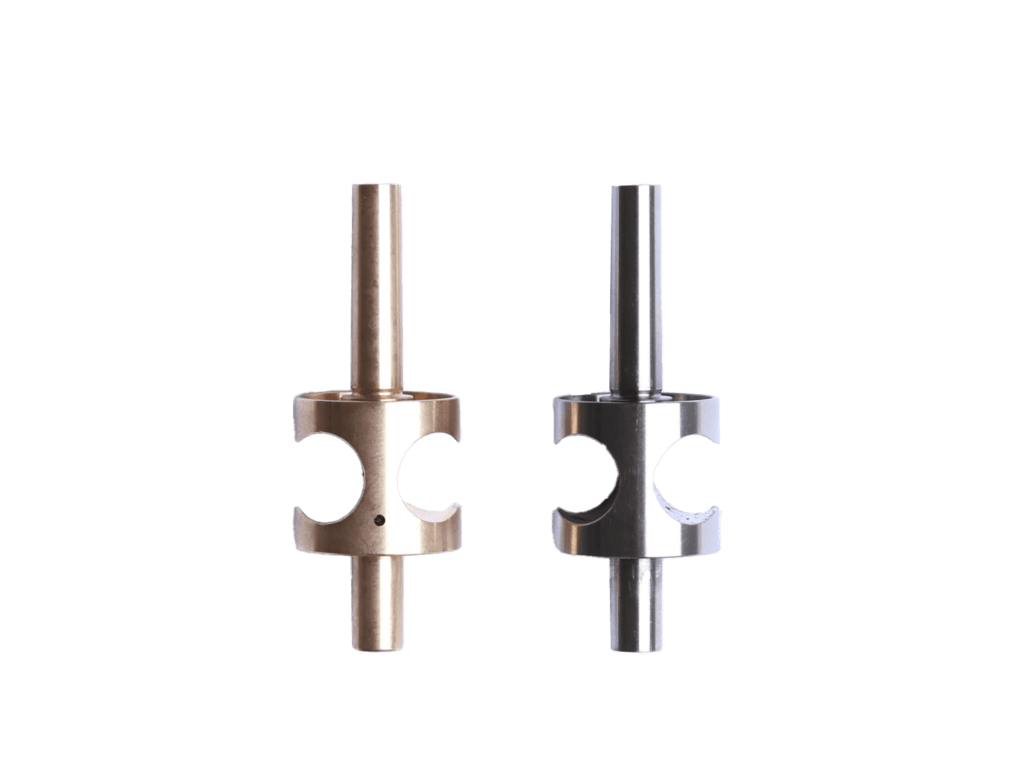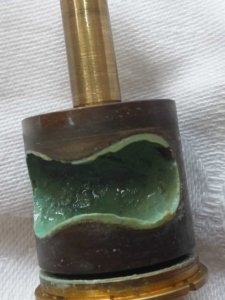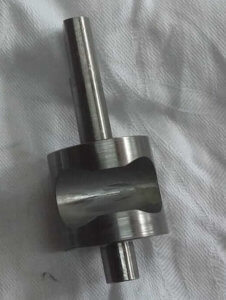Titanium valves
Why titanium?
Due to its low density (4.43 g/cm³), high resistance to oxidation and high stability, we have chosen titanium as the material for our rotary valves.
Compared to valves made from traditional materials such as brass (8.5 g/cm³) or bronze (8.7 g/cm³), a titanium valve weighs only around half as much.
The valves therefore run much smoother and the spring pressure can be set more precisely. This is particularly noticeable with larger instruments.
For example, a baritone rotary valve made of titanium weighs only as much as a trumpet rotary valve made of brass.
We use titanium grade 5 (Ti6Al4V), which is also used in medical technology and in the aerospace industry.

Hygiene
Generally, the musician is unable to see the inside of an instrument. We have compared our instruments every time we have overhauled them in recent years and it has been verified.
The picture on the left shows a brass valve after two years of use, on the right a titanium valve after five years.
This shows very clearly that nothing can be deposited due to the non-oxidizing titanium. It is not without reason that hip joints are made from the same material.


